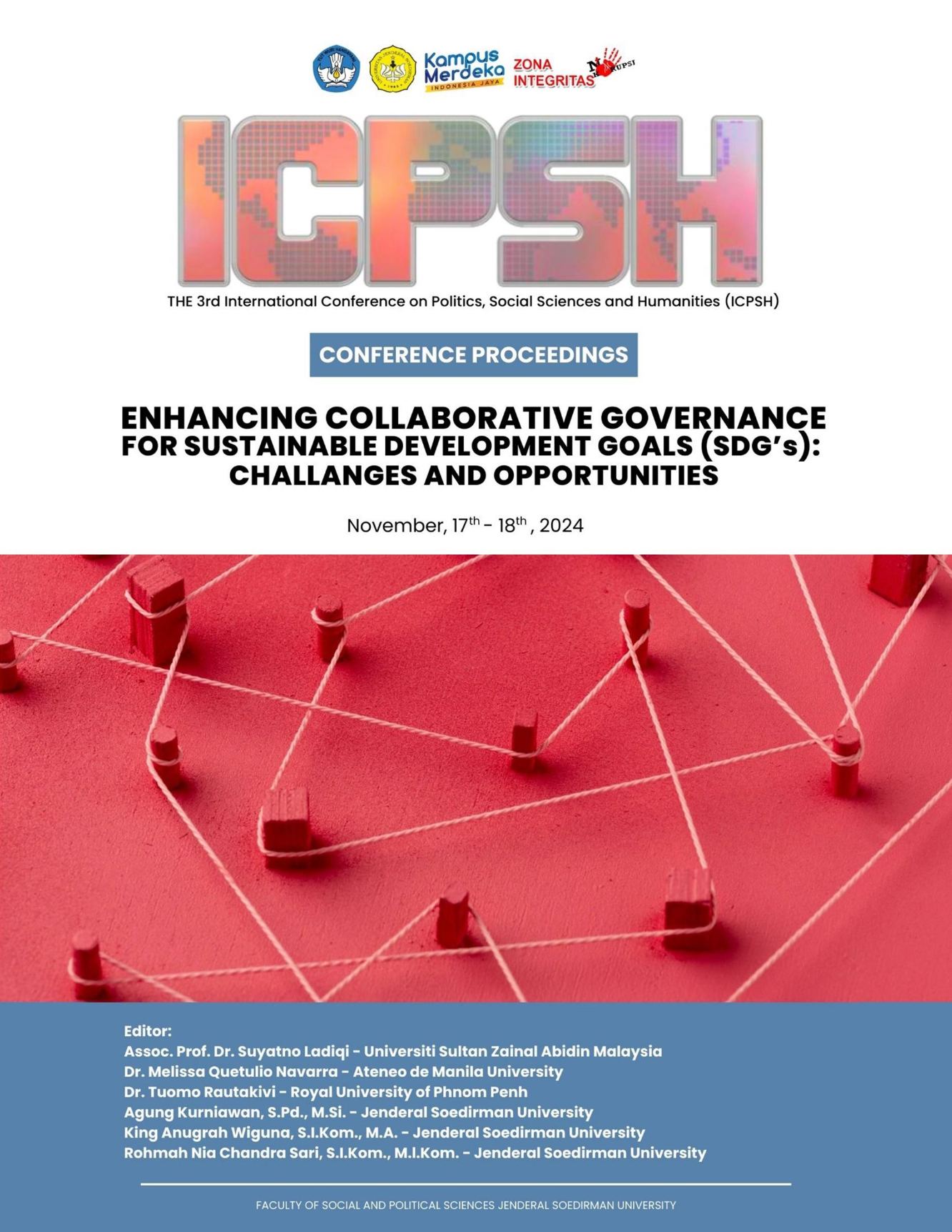Policy Innovation of Waste Management in Banyumas Indonesia
Abstract
This study examines the potential for policy innovation in waste management in Kabupaten Banyumas, focusing on three main aspects: community participation, infrastructure development, and regulatory improvement. Using a combination of desk study and Participatory Policy Analysis (PPA) methods, this study involved various stakeholders to identify challenges and opportunities for innovation. The results of the analysis show that although there have been initiatives such as waste banks and waste segregation programmes, their implementation is hampered by low community participation and limited infrastructure, especially in rural areas. Based on these findings, the research proposes a series of policy innovations, including: (1) development of an integrated community-based management system, (2) optimisation of technology in waste facility management, (3) implementation of incentive schemes to increase active community participation, and (4) strengthening of sustainable environmental education programs. This policy innovation is expected to increase the effectiveness of waste management, encourage community participation, and create a sustainable waste management model in Banyumas Regency.



